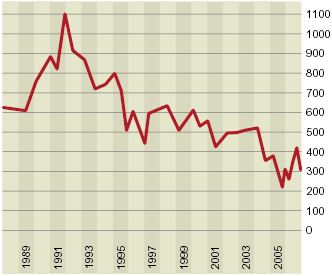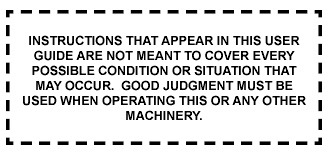
Tommyjournal archive January 2007
Bill Shakespeare said
This above all: to thine own self be true,The converse is just as interesting to me: being truthful to others promotes being truthful to onself.
And it must follow, as the night the day,
Thou canst not then be false to any man.
Now, if only our culture really valued either form of truthfulness (to others or to oneself).
Scooter Libby is on trial for perjury. Some people have deemed the prosecution trivial because no one was indicted for outing Valerie Plame, i.e. Libby was "only" charged with perjury and obstruction of justice.
American society is inured to deceit. I think that's decadent; I think it's not in our best interest, long-term.
Today's NY Times has an article about how and why people believe in magic. It's worth reading for some points it makes about psychology, e.g.--
"The question is why do people create this illusion of magical power?" said the lead author, Emily Pronin, an assistant professor of psychology and public affairs at Princeton. "I think in part it's because we are constantly exposed to our own thoughts, they are most salient to us" -- and thus we are likely to overestimate their connection to outside events.The tacit assumption is that there is no magic; whether or not coincidences are magical or just dumb luck (and how one can even tell the difference) is beyond the scope of the article. But how to tell the difference is an interesting question to me (and not just because it entails mathematics). For example--
Last Thursday, I was thinking about my friend Brian who'd died 12 years ago. I miss Brian, we were good friends. On Thursday, I read a bunch of letters and other stuff from Brian that I'd saved, things I hadn't looked at in years. THEN, a couple hours later, I got a piece of email from someone in Australia who'd met Brian years ago. On Thursday night (Friday afternoon in Australia), he googled Brian's name and found a Tommyjournal entry that mentioned him. The two of us had been reminiscing about Brian at about the same time.
How can I know whether this was some kind of connection, or just dumb luck. How can anyone tell. I know how to make all the usual skeptical arguments about how coincidences will happen as a matter of course, and that it's easy to overemphasize them. But as useful and important as those (and other) skeptical arguments are, they are not the final word. To be honest about the matter, I have to admit that I don't have enough information to say.
I can say that a wide range of magical beliefs are without foundation. E.g., enough of astrology's claims are clear enough to be testable, and they don't hold up under scrutiny. But there are all kinds of magical beliefs that are not amenable to statistical analysis; how would you even begin to calculate the odds that Thursday night's coincidence was due to chance.
Best I can try to do is keep a level head about the matter. As the Times article says,
The sense of having special powers buoys people in threatening situations, and helps soothe everyday fears and ward off mental distress.I try to cultivate a sense of equanimity that doesn't depend on beliefs. I can't say I've mastered that, but it's my aim.
In any case, I like getting readers from search engine referrals. As an experiment, I am registering this blog with Technorati--maybe that'll get me some more hits. Their registration process entails posting a link; this I now do. Technorati Profile
I started keeping a personal journal when I was 16. Just for fun this evening, I picked a page at random out of my early journal entries and resolved to write about it here.
The page I grabbed dates from when I was 19 years old and still horribly conflicted about my sexuality. I knew I was more attracted to boys--but I thought being straight would be more appropriate, and I was trying to date girls.
In my journal entry from November 8, 1978, I wrote "But, seriously--why do you want to be heterosexual?" and then wrote out a dialogue between two inner voices, one lobbying for being straight and one lobbying against. The dialogue ends with me resolving to further pursue a girl I knew from college.
Heh. I did date her, but nothing came of it. I remained conflicted about my sexuality for another year. (How I came to fully accept being gay in 1979 is an interesting story--but for another time.)
I'm struck by what a different world it was then. Gay people were all but invisible; I don't remember anyone in my high school being openly gay. I remember the first time a boy in my class wore an earring to school, I remember what an uproar it caused. (The boy in question was able to pull it off only because he was too big and strong for anyone who didn't like his earring to pick on him.)
Even though I know it's typical for one's adolescence to be a train wreck, it's still painful for me to read much of what I wrote back then.
But to not end all this on a sour note, I'll say that there were also many high points in my teenage years. I had good friends, I did a lot of bike riding, I saw some great concerts in New York, and I managed to learn a few things--even if slowly.
Can you guess what an orchidometer measures?
This week, jury selection started in the trial of Irving Lewis "Scooter" Libby. Much of the country may yawn, but I'm following the trial with interest. Firedoglake--a lefty blog that's sometimes great but sometimes can be too tendentious for my taste--is covering the trial in detail.
Sam Harris and Andrew Sullivan have started a "no-holds-barred blogalogue" on God, faith, fundamentalism, and related topics. Sullivan is defending moderation in religion; Harris is contending that there is no clear line between religious moderation and extremism. This could make for interesting reading; Sullivan admits to being "provoked, even irritated" but is taking his time to respond.
As of today, Tommyjournal offers rudimentary RSS and Atom feeds; with-it browsers will show a
<WHINE> It sucks that there are two formats (RSS and Atom), and it sucks that browser behavior is inconsistent (it seems even more inconsistent with feeds than it is with vanilla HTML, which already sucked). And I must say, reading protocol specs is more fun than human beings should be allowed to have. The Atom spec provides for both an icon and a logo; the former image "SHOULD have an aspect ratio of one (horizontal) to one (vertical)" whereas the latter image "SHOULD have an aspect ratio" of 2 to 1, where SHOULD is defined in RFC 2119.
I know I chose to blog the hard way, no one told me to code my own rather than using off-the-shelf blog software. Even so. </WHINE>
Daniel Tammet is an autistic savant who not only has unusual skills at calculation but who also has a form of synesthesia that gives sensuous qualities to numbers. From his book Born on a Blue Day:
... I have always been fascinated by prime numbers. I see each prime as a smooth-textured shape, distinct from composite numbers (non-primes) that are grittier and less distinctive. Whenever I identify a number as prime, I get a rush of feeling in my head (in the front center) which is hard to put into words. It's a special feeling, like the sudden sensation of pins and needles.
(from chapter 1; see NPR's page on Tammet)
 It's my sense that math-heads tend to like primes, whereas the masses
are more drawn to composite numbers. Round numbers are more familiar;
prime numbers look downright weird in some settings.
It's my sense that math-heads tend to like primes, whereas the masses
are more drawn to composite numbers. Round numbers are more familiar;
prime numbers look downright weird in some settings.
Round numbers are customary for "best of" lists: the 100 best this, the 10 best that, and so on. Once upon a time (that is, in 1931), an authoritarian ruler of a European country established an award (the "Corvin Decoration") and summoned 72 of the best minds of his country to receive medals: 12 for the really great and 60 for the great-but-not-that-great. 12, 60, and 72: nice composite numbers, perhaps chosen to evoke a sense of wholeness and completeness. The best part was that at the very end, when the ceremony was to sum up with its nice round-numbered 72nd medal being handed out, the name of Béla Bartók was called (last on the list because his music was a bit wild for the conservative ruler's tastes), and no one moved. Bartók didn't care to accept a medal from a dictator and hadn't shown up. 71 medals were awarded. Good on you, Bartók; 71 is a nice prime number.
Speaking of numbers--
T cells: 308 < 420.
You win some, you lose some.

As a teenager in the 1970s, I wrote programs to print out (the decimal representations of) the then-largest-known prime numbers. I used the computer at my high school to print out the 6002 decimal digits in 219937-1; the program took about 15 minutes to run (on a machine with a ≈200 kHz clock rate and 16 kB of core memory). 6002 digits fit nicely on an 11"×15" page of line printer paper.
Later, 221701-1 was found to be prime; in 1979, I printed copies of its 6533 digits and gave them out to friends.
At the moment, the largest known prime number is 232582657-1. You can get a 29"×40" poster of its 9,808,358 digits (in teensy-weensy print).
The last few largest-known prime numbers have been found by a distributed computing project (GIMPS). Anyone with cycles to spare can sign up and join the search.
I joined in a little while back; the GIMPS server assigned my machine the job of testing 228840277-1 for primality. The verdict, after 26 days of processing: not prime. The server then assigned me 232120449-1, and the search goes on. I hasten to point out that the odds are very slim that I'll end up testing a candidate that turns out to be prime, but that's life.
Try to watch one of the Will It Blend? videos without laughing. Just try.
 |  |
| iPod | Coke Smoothie |
|
from the instruction manual for their blender: |

|
Amr Mohsen, whose company I'd worked at in the early 1990s, was sentenced today to 17 years in prison.
The prosecution had asked for 19 years.
One of my favorite bloggers (Bill Montgomery, a.k.a. Billmon) folded his tent last week. His blog (Whiskey Bar) was informative, insightful, and funny as hell. And although he had a lot of readers, he never tried to siphon money from them with Google AdSense links. Some of his best-known pieces were just collections of statements (often contradictory) that public figures had made; if you never read any Billmon, try his May 29, 2003 piece, archived here.
Anyhow, it's a new year, which by tradition means a new look for Tommyjournal. Thanks to Mike for the Roadgeek2000SeriesF font used in the new graphic.
It occurs to me that I've been blogging for 47 months--that is, for the last twelfth of my life. It doesn't seem like Tommyjournal started that long ago. Tempus fugit. And the lfth in twelfth is one gnarly consonant cluster.
current journal
contact
FAQ
archive